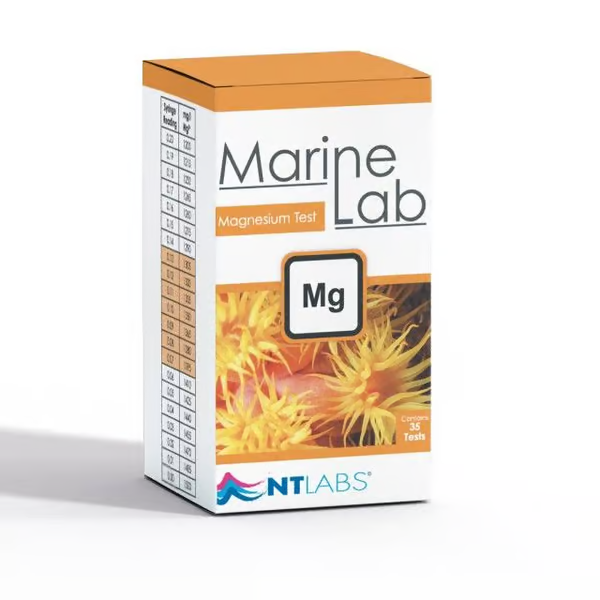NT Labs Marine Magnesium Test Kit
NT Labs Marine Magnesium Test Kit is backordered and will ship as soon as it is back in stock.
Delivery and Shipping
Delivery and Shipping
Delivery £4.95 for orders unto £50
Orders over £50 are delivered free
Pallet Deliveries - 1 man delivery service for Aquariums, Water Features and Ponds.
- The majority of aquariums will be delivered on a wooden pallet, this is to ensure that your order arrives in perfect condition.
Some items may not be able to be shipped. (large, frozen foods, very fragile items or live animals)
- Click and collect is available
Please contact customer service or if you require more assistance with shipping charges.
Description
Description
Magnesium is the second-most abundant cation found in natural seawater. Magnesium is essential for the efficient assimilation of calcium by marine invertebrates.
Without the correct levels of magnesium, corals and invertebrates cannot properly or efficiently utilise calcium for the formation of their shells and growth of skeletons. Sufficient magnesium also prevents precipitation of calcium and carbonate ions, ensuring bioavailable calcium and a pH stabilising effect. As magnesium tends to deplete with the age of the water, monitoring the magnesium frequently is the only reliable method to determine the concentration present in the water.
The average magnesium level in natural seawater is 1300-1400 mg/l. Equally importantly, the correct ratio between magnesium and calcium should be achieved. The concentration of magnesium should be 3 times that of calcium (e.g. a magnesium to calcium of 3:1).



















